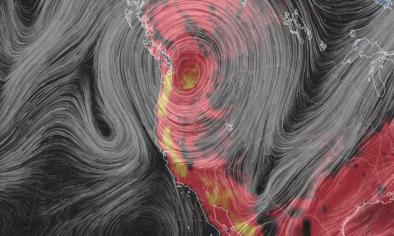The 2021 western North America heat wave among the most extreme events ever recorded globally
Study key findings & significance
- The heat wave in the Pacific Northwest U.S. and western Canada in June-July 2021 was one of the most extreme such events on record for anywhere on Earth.
- The heat wave set an all-time Canadian high of 49.6 °C in Lytton, British Columbia, on June 29, an increase of 4.6 °C from the previous peak.
- The study uncovered five other heat waves around the world which were even more severe, but went largely underreported.
- The top three hottest events were in Southeast Asia in April 1998, which hit 32.8 °C, Brazil in November 1985, peaking at 36.5 °C, and Southern USA in July 1980, when temperatures rose to 38.4 °C.
Author quotes
“The recent heatwave in Canada and the United States shocked the world. Yet we show there have been some even greater extremes in the last few decades. Using climate models, we also find extreme heat events are likely to increase in magnitude over the coming century – at the same rate as the local average temperature.”
Vikki Thompson, lead author and climate scientist at the University of Bristol,
Abstract
In June 2021, western North America experienced a record-breaking heat wave outside the distribution of previously observed temperatures. While it is clear that the event was extreme, it is not obvious whether other areas in the world have also experienced events so far outside their natural variability. Using a novel assessment of heat extremes, we investigate how extreme this event was in the global context. Characterizing the relative intensity of an event as the number of standard deviations from the mean, the western North America heat wave is remarkable, coming in at over four standard deviations. Throughout the globe, where we have reliable data, only five other heat waves were found to be more extreme since 1960. We find that in both reanalyses and climate projections, the statistical distribution of extremes increases through time, in line with the distribution mean shift due to climate change. Regions that, by chance, have not had a recent extreme heat wave may be less prepared for potentially imminent events.



